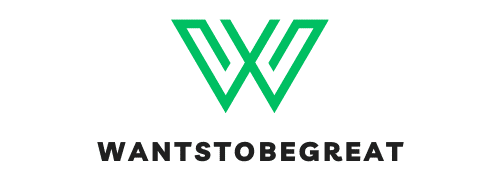What’s the Role of Technology in Personalized Nutrition and Dietary Management?

Personalized nutrition is a concept that is steadily gaining momentum in the health and wellness sector. It is a dietary approach that tailors food intake recommendations to an individual’s specific needs, based on their genetic makeup, gut microbiome, lifestyle and health status. Technology has played a crucial role in the development and implementation of this concept. This article will explore various facets of this relationship, focusing on key areas such as data collection, dietary planning, and monitoring.
Leveraging Data for Personalized Nutrition
In the world of personalized nutrition, data is king. The ability to gather, analyze and interpret data from various sources is the foundation of tailoring a diet to an individual’s needs.
A voir aussi : Can Machine Learning Improve the Detection of Counterfeit Electronic Components?
The use of scholar data and PubMed studies has proven invaluable in this regard. Researchers and nutritionists can access vast amounts of information about the impact of different foods and nutrients on health. They can evaluate the efficacy of different dietary approaches for various health conditions and understand the role of individual genetic variation in nutritional needs.
Mobile technologies have also proven to be a significant player in data collection. Smartphone applications can track food consumption, physical activity, sleep patterns and other lifestyle factors. This data can then be used to personalize dietary advice. These apps can also deliver personalized advice and reminders directly to the individual, facilitating the implementation of the dietary plan.
A lire en complément : How Is Artificial Intelligence Revolutionizing Asset Management for Better Returns?
High-throughput technologies provide detailed insights into an individual’s genetic makeup and gut microbiome, two critical factors in personalized nutrition. Genetic testing can identify variations linked to increased needs for certain nutrients, or a higher risk of health problems influenced by diet. Meanwhile, tests of the gut microbiome can identify imbalances that could be addressed through diet.
Personalized Dietary Planning
Once the pertinent data has been gathered and analyzed, it is time to create a personalized dietary plan. Technology plays a central role in this process.
Using nutrigenomic databases, healthcare providers can determine the optimal nutrient intakes for individuals based on their genetic data. For instance, an individual with a genetic variation associated with poor vitamin C absorption might need a higher intake than the average person.
Diet planning software can take into account a wide range of factors, from food preferences to specific dietary restrictions, and generate personalized meal plans accordingly. This technology can also provide detailed nutritional analysis of proposed meal plans, ensuring they meet the individual’s needs.
Monitoring and Adjusting the Diet
The role of technology in personalized nutrition doesn’t end with the creation of a diet plan. Monitoring and adjustments are necessary to ensure the dietary approach is working and to tackle any challenges that arise.
Mobile apps can provide real-time tracking of food intake and lifestyle habits, allowing individuals and their healthcare providers to see how closely they are following the plan. They can also enable the tracking of health indicators such as weight, blood pressure, and blood glucose levels.
Telemedicine platforms offer a virtual space for individuals to consult with their healthcare providers. They can discuss any difficulties they’re experiencing, adjust the dietary plan as needed, and get answers to any questions they may have.
Group-based Approaches in Personalized Nutrition
The power of technology in personalized nutrition is not just about individual care. Group-based approaches can also benefit from tech advancements.
For instance, technology can facilitate the creation and management of support groups for individuals following similar dietary approaches. These groups can provide moral support, share recipes and strategies, and create a sense of community.
Also, population-level data collected via mobile apps and online platforms can be used to draw broader conclusions about the effectiveness of different dietary strategies. These insights can inform the development of public health policies and guidelines.
The Future of Tech and Personalized Nutrition
Technology and personalized nutrition are two fields on a convergent path. As technology continues to advance, it will open up new possibilities for personalized dietary management.
For instance, the emerging field of artificial intelligence (AI) holds great promise for personalized nutrition. AI algorithms could potentially analyze an individual’s data and generate personalized dietary recommendations automatically. Wearable devices may also play a significant role, providing real-time data on physiological responses to food intake.
While we’ve seen significant advancements, it’s clear that the role of technology in personalized nutrition is an area of immense potential and growth. As further innovations emerge, we can expect to see even more personalized, effective dietary management strategies.
The Impact of Machine Learning and AI on Personalized Nutrition
Machine learning and artificial intelligence (AI) are two significant breakthroughs that are paving their way into personalized nutrition and are expected to revolutionize the field. This advanced technology is accelerating the processing of large amounts of data, facilitating a better understanding of individual health patterns and more accurate dietary recommendations.
Incorporating machine learning algorithms in personalized nutrition interventions can help in predicting individual responses to different dietary strategies. These algorithms can analyze the complex interplay between numerous factors such as genetic makeup, gut microbiome, dietary intake and lifestyle habits to establish the most effective dietary approach for an individual.
AI, on the other hand, can automate the process of dietary planning. From interpreting genetic test results to creating meal plans, AI technology can provide a highly individualized dietary advice in a matter of minutes. For instance, an AI could determine that an individual with specific genetic markers requires additional vitamin D, then recommend foods high in this nutrient and even suggest recipes utilizing these foods.
The future might also see the advent of AI-driven wearable devices that can monitor physiological responses to food in real-time. Such devices could provide immediate feedback, enabling individuals to understand how their bodies respond to different foods and adjust their dietary intake accordingly.
Image-based Dietary Assessment and Nutritional Genomics
Another promising technology in the field of personalized nutrition is image-based dietary assessment. This approach involves the use of digital photography and computer vision techniques to automatically identify and quantify the food and drink consumed by an individual. This type of dietary assessment can provide more accurate data on dietary intake than traditional self-reported methods, and can be effortlessly integrated into mobile apps.
The field of nutritional genomics, or nutrigenomics, is also experiencing significant advancements due to technology. Nutrigenomics is the study of the relationship between the human genome, nutrition, and health. By studying the effects of nutrients on gene expression, scientists can provide more precise dietary recommendations based on an individual’s genetic makeup.
For instance, individuals with a certain genetic variant may be more susceptible to high cholesterol levels when consuming a diet high in saturated fat. Therefore, a personalized nutrition approach would suggest a low-saturated-fat diet for these individuals.
Conclusion
In summary, technology is playing a pivotal role in the growth and development of personalized nutrition. From data collection and analysis to dietary planning and monitoring, technology is making personalized nutrition more accessible and effective. Machine learning and AI have the potential to further revolutionize the field, offering highly personalized dietary recommendations at unprecedented speed and precision.
Moreover, innovative approaches such as image-based dietary assessment and nutrigenomics are providing a more in-depth understanding of individual dietary needs and responses. As we continue to embrace and integrate these technological advancements, we can expect a future where personalized nutrition is the norm rather than the exception. As further research emerges, the combination of precision nutrition and advanced technology will undeniably lead to more effective and sustainable dietary management strategies promoting overall health and wellbeing.
